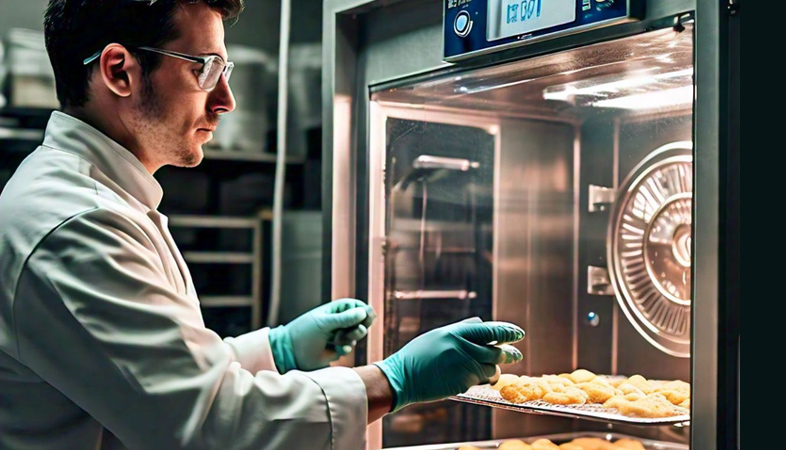The Latest Innovations in Dishwashing Technology for Kitchen Stewards
As technology evolves, so does the equipment that supports their efforts.
In the fast-paced environment of commercial kitchens,
efficiency and cleanliness are critical to smooth operations. Kitchen stewards,
responsible for ensuring a steady supply of clean dishes, utensils, and
cookware, play a pivotal role in maintaining these standards. As technology
evolves, so does the equipment that supports their efforts. Modern innovations
in dishwashing technology have revolutionized the way kitchen stewards manage
their tasks, combining speed, sustainability, and hygiene to enhance overall
kitchen performance.
One of the most significant advancements in dishwashing technology is the introduction of high-capacity, energy-efficient dishwashers. These machines are designed to handle the demanding workloads of commercial kitchens while consuming minimal energy and water. Advanced models now feature smart sensors that detect the level of dirt and adjust water pressure, temperature, and detergent accordingly. This not only ensures optimal cleaning results but also reduces resource waste, aligning with the growing emphasis on eco-friendly practices in the hospitality industry.
Automation is another game-changer in dishwashing. Robotic dishwashing systems, which use artificial intelligence and machine learning, are becoming more common in modern kitchens. These systems can sort, load, and clean dishes with minimal human intervention, freeing up kitchen stewards to focus on other tasks. Robots equipped with vision technology can identify different types of items, ensuring that delicate glassware and heavy cookware are handled appropriately. This level of precision reduces breakage and wear, extending the lifespan of kitchen equipment.
Additionally, dishwashers now feature advanced drying systems that eliminate the need for manual drying. Heat recovery technology captures steam generated during the washing process and uses it to dry dishes, making the process faster and more energy-efficient. This innovation not only improves turnaround times but also enhances hygiene by minimizing the risk of contamination from manual handling.
Hygiene is a top priority in commercial kitchens, and modern dishwashing technology addresses this with features like UV sterilization and high-temperature washing cycles. These technologies ensure that dishes are not only clean but also free from harmful bacteria and pathogens. In some models, self-cleaning mechanisms maintain the internal hygiene of the dishwasher itself, reducing the need for frequent maintenance and ensuring consistent performance.
The integration of digital monitoring systems in dishwashing equipment has also transformed kitchen operations. Connected dishwashers can provide real-time data on water and energy usage, cycle times, and maintenance requirements. This information allows kitchen stewards and managers to identify inefficiencies and address issues proactively, preventing costly downtime. Some systems even offer remote control capabilities, enabling adjustments to be made from a smartphone or computer.
Another innovative feature is the use of environmentally friendly detergents and water recycling systems in dishwashers. By utilizing biodegradable cleaning agents and reusing water within the machine, these systems significantly reduce the kitchen’s ecological footprint. For establishments committed to sustainability, such features are invaluable in meeting environmental goals while maintaining high standards of cleanliness.
Compact, space-saving dishwashing units are also gaining popularity, especially in smaller kitchens where space is a constraint. These machines are designed to fit into tight spaces without compromising on performance. Portable dishwashers, which can be moved as needed, provide additional flexibility for kitchens that handle varying volumes of dishwashing tasks.
The adoption of voice-activated controls and touchscreen interfaces has made modern dishwashing technology more user-friendly. Kitchen stewards can easily program and monitor cycles, adjust settings, and access troubleshooting guides with minimal effort. These intuitive controls reduce the learning curve for new staff and ensure that the equipment is used to its full potential.
Finally, the focus on durability and low maintenance in modern dishwashing machines ensures long-term cost savings for kitchens. Advanced materials and construction techniques enhance the lifespan of the equipment, while modular designs make it easier to replace specific components without the need for extensive repairs.
As the hospitality industry continues to evolve, the role of kitchen stewards is becoming increasingly dynamic. Innovations in dishwashing technology not only make their work more efficient but also elevate the overall quality of service in commercial kitchens. By embracing these advancements, establishments can optimize their operations, reduce environmental impact, and maintain the highest standards of hygiene and cleanliness. For kitchen stewards, these technologies are indispensable tools that enable them to meet the demands of modern dining with confidence and ease.
.png)





























